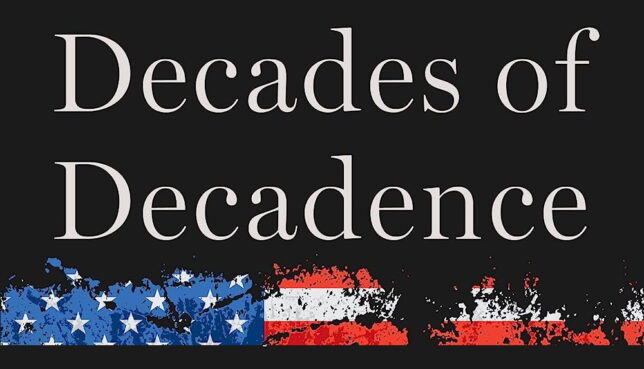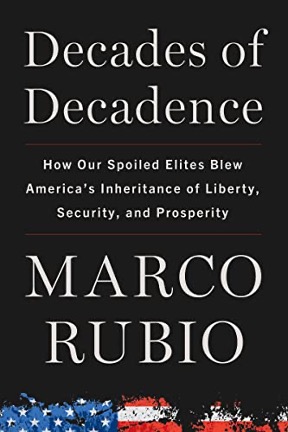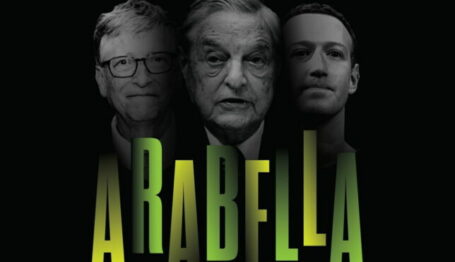Book Profile
Donors’ Distance in Decades of Decadence
The anti-elite tone of Marco Rubio’s new book is evidence that he understands what gave rise to Donald Trump in 2016 and what that ascendant populism portends for future political and policy debates, including the politics surrounding—and potentially, the policy structuring—establishment philanthropy.


“[T]he gulf between the Republican party’s donors and voters has never been greater, and ultimately (and thankfully), the voters hold the power,” according to U.S. Sen. Marco Rubio of Florida in his new book Decades of Decadence: How Our Spoiled Elites Blew America’s Inheritance of Liberty, Security, and Prosperity.
Rubio ran for the Republican nomination for president in 2016—losing out, with many others, to Donald Trump. Rubio was one of several to be considered, seriatim, the “last man standing” against Trump in the primary season that year.
Trump was most decidedly not the Republican donor class’s candidate—but ultimately, enough voters in both the primaries and then the general election made Trump President. There was great, and there remains growing, distance between big donors and these voters.
As for Rubio, he successfully ran for re-election, to his third Senate term, in 2022. He is not currently running for the presidential nomination in 2024, though the fact that he’s just written a book like Decades of Decadence would sure seem to be evidence that he plans on running again for something sometime in the future.
A Trailing, and Leading, Indicator
While we don’t do politics here at The Giving Review, we do get wi-fi and can read the internet. From it, one could plausibly conclude that Decades of Decadence’s decidedly populist tone is good evidence, too—that Rubio understands what gave rise to Trump’s political ascendance in ’16. To that extent, it’s something of a trailing indicator.
The book is also evidence of what the ascendant populism within conservatism portends for future political and policy debates. To that extent, then, it may be more of a leading indicator. This future would include the politics surrounding—and potentially, the very policy structuring—establishment philanthropy in America.
“This is a book about what happens when the country’s elite decide that all the things that brought our nation” its success, Rubio writes, “are, in fact, the things we most urgently need to bring to an end.” His list of what the “spoiled elites” have blown prominently includes once-thriving towns that lost all their jobs in an efficient, worldwide, market economy and the once-healthy, traditional family that has been so devalued, seemingly purposely by a hostile culture. Importantly, it includes a once-shared history, as well.
There has been an arrogant indifference on the part of elites toward these towns, the family, and that history, to quite-ill effect. Most of those elites are donors, to politics and nonprofits; in fact, because of the accepted coin of the realm, the bigger the donors, the more elite they are. Donors’ distance from the multi-magnitudinally larger number of non-elite, fellow citizens in the democracy—the “forgotten,” as they’ve been called—will likely have a continuing ill effect on those donors, ultimately one much greater than the electoral outcome of ’16 that they didn’t like and which so surprised them.
From Reality and Real Charity
In Decades of Decadence, Rubio recalls discussions with his campaign staff before going to fundraisers “with the financial elite of this country” in distant cities. “On our way to the airport, they would remind me of who cared about what in the room I was about to walk into,” he writes.
There is a hedge fund manager who has supported Democrats in the past, for instance, and he really wishes I wouldn’t talk about abortion as much. There’s a bank executive who’s really worried about Trump’s rhetoric on immigration and wishes I hadn’t pulled the rug out from under the Gang of Eight bill a couple years earlier. One thing I rarely heard was that this Fortune 500 company CEO is really interested in moving the supply chain back to America. Or that Wall Street guy is very concerned about China’s exploitation of our capital markets.
That makes sense, of course, because for these people, the economy is working just fine. … Even in the years after the 2008 financial crisis, when the major banks who’d caused the crisis were bailed out, it was this group that benefited most. Many of them didn’t seem to care that the government didn’t bail out homeowners who’d suffered during the crisis, or that historic numbers of Americans had lost their jobs in the aftermath.
There’s a distance, in the case from reality.
The same or a similar distance can be seen between Big Philanthropy and the rest of the nonprofit sector, too, of course. In fact, Rubio’s pre-fundraiser conversations with his staff have their equivalents in nonprofitdom, as well, all the time. Hear the hypothetical conversation: This longtime donor thinks x, about which he got the (Semi-?)Reputable Nonprofit Press to publish a very-edited version his Ph.D. thesis on it, and is concerned about our y. This would-be donor might give if we do a, and maybe a little bit of b, even though that’s farther from our original mission than the c we did two years ago for Joe’s money. By the way, Joe invited his roommate from MIT—who last year forked over $xxx to this other group that does pretty much what we do, but obviously not as good as we do it, so she should be giving us at least half that! Distance.
From reality, and from real charity.
Bi- or Uni-Partisan and Cross-Ideological
The distance is bipartisan—or, maybe more descriptively, uni-partisan—and cross-ideological, Rubio notes. During a 2008 fundraiser, as Rubio recalls, Democratic presidential candidate Sen. Barack Obama told donors, “You go into these small towns in Pennsylvania, and like a lot of small towns in the Midwest, the jobs have been gone now for twenty-five years and nothing’s replaced them. … [E]ach successive administration has somehow said these communities are gonna regenerate and they have not.”
“Back in 2008,” Rubio writes, “the Democrat Party still tried to appeal to working-class voters—many of whom were the backbone of the historical Democrat coalition. Its donors, operatives, and intellectuals”—most of them philanthropically funded, including by those same donors—
were all cosmopolitan elites isolated in coastal enclaves, but the vast majority of its voters were hardworking Americans. The problem for Obama at that moment was squaring the working-class coalition that he hoped would elect him with the roomful of liberal elites he was speaking to, whose policies had made so many American jobs disappear in the first place.
It was later during that same event, as Rubio also retells it, that Obama more famously said it was “not surprising” that working-class people who lose their jobs “get bitter; they cling to guns or religion or antipathy toward people who aren’t like them or anti-immigrant sentiment or anti-trade sentiment as a way to explain their frustrations.”
A lot of people get the internet, actually so they heard or read about this. Obama’s problem was thus made worse, and it has only gotten worse since then for Democrats. The remark “revealed what the liberal elite truly thought about the rest of America,” Rubio accurately observes, “and represented the fundamental turn in America that happened, sometime after Obama’s reelection, that made cultural warfare against regular Americans the defining source of conflict in our politics.”
Eight years later, in the same 2016 election in which Rubio ran, Democratic presidential candidate Sen. Hillary Clinton equally if not more famously used the word “deplorables” to describe some members of the working class—again, while speaking to elite donors, who she must’ve thought wanted to hear a characterization like that. Trump was victorious over her, and them, too.
“In reality,” according to Rubio, “the elites in both parties had more in common culturally with one another than the rest of America.”
A Growing Gulf, with Future Effects
Rubio is right in Decades of Decadence. There is a gulf. It’s economic and it’s cultural, and those may actually be the same phenomenon. It’s not going away. It’s growing. The strong populist vexation with it, and the desire to do something about it, are not going away, either. They are not a fad. The discontent, too, is only growing. There will be effects in the coming decades.
This article originally appeared in the Giving Review on June 21, 2023.




